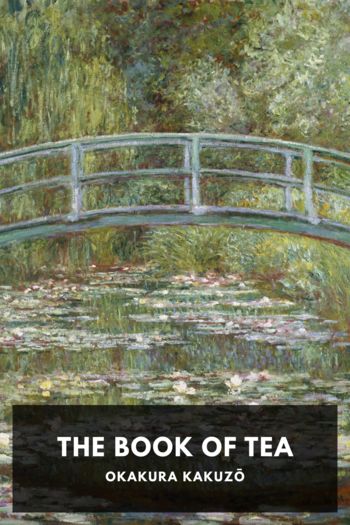The Warden Anthony Trollope (top 100 novels txt) 📖

- Author: Anthony Trollope
Book online «The Warden Anthony Trollope (top 100 novels txt) 📖». Author Anthony Trollope
“I quite agree with them,” said Dr. Grantly, refolding the letter. “I perfectly agree with them. Haphazard is no doubt the best man; a thorough churchman, a sound conservative, and in every respect the best man we could get;—he’s in the House, too, which is a great thing.”
Mr. Chadwick quite agreed.
“You remember how completely he put down that scoundrel Horseman about the Bishop of Beverley’s income; how completely he set them all adrift in the earl’s case.” Since the question of St. Cross had been mooted by the public, one noble lord had become “the earl,” par excellence, in the doctor’s estimation. “How he silenced that fellow at Rochester. Of course we must have Haphazard; and I’ll tell you what, Mr. Chadwick, we must take care to be in time, or the other party will forestall us.”
With all his admiration for Sir Abraham, the doctor seemed to think it not impossible that that great man might be induced to lend his gigantic powers to the side of the church’s enemies.
Having settled this point to his satisfaction, the doctor stepped down to the hospital, to learn how matters were going on there; and as he walked across the hallowed close, and looked up at the ravens who cawed with a peculiar reverence as he wended his way, he thought with increased acerbity of those whose impiety would venture to disturb the goodly grace of cathedral institutions.
And who has not felt the same? We believe that Mr. Horseman himself would relent, and the spirit of Sir Benjamin Hall give way, were those great reformers to allow themselves to stroll by moonlight round the towers of some of our ancient churches. Who would not feel charity for a prebendary when walking the quiet length of that long aisle at Winchester, looking at those decent houses, that trim grass-plat, and feeling, as one must, the solemn, orderly comfort of the spot! Who could be hard upon a dean while wandering round the sweet close of Hereford, and owning that in that precinct, tone and colour, design and form, solemn tower and storied window, are all in unison, and all perfect! Who could lie basking in the cloisters of Salisbury, and gaze on Jewel’s library and that unequalled spire, without feeling that bishops should sometimes be rich!
The tone of our archdeacon’s mind must not astonish us; it has been the growth of centuries of church ascendancy; and though some fungi now disfigure the tree, though there be much dead wood, for how much good fruit have not we to be thankful? Who, without remorse, can batter down the dead branches of an old oak, now useless, but, ah! still so beautiful, or drag out the fragments of the ancient forest, without feeling that they sheltered the younger plants, to which they are now summoned to give way in a tone so peremptory and so harsh?
The archdeacon, with all his virtues, was not a man of delicate feeling; and after having made his morning salutations in the warden’s drawing-room, he did not scruple to commence an attack on “pestilent” John Bold in the presence of Miss Harding, though he rightly guessed that that lady was not indifferent to the name of his enemy.
“Nelly, my dear, fetch me my spectacles from the back room,” said her father, anxious to save both her blushes and her feelings.
Eleanor brought the spectacles, while her father was trying, in ambiguous phrases, to explain to her too-practical brother-in-law that it might be as well not to say anything about Bold before her, and then retreated. Nothing had been explained to her about Bold and the hospital; but, with a woman’s instinct she knew that things were going wrong.
“We must soon be doing something,” commenced the archdeacon, wiping his brows with a large, bright-coloured handkerchief, for he had felt busy, and had walked quick, and it was a broiling summer’s day. “Of course you have heard of the petition?”
Mr. Harding owned, somewhat unwillingly, that he had heard of it.
“Well!”—the archdeacon looked for some expressions of opinion, but none coming, he continued—“We must be doing something, you know; we mustn’t allow these people to cut the ground from under us while we sit looking on.” The archdeacon, who was a practical man, allowed himself the use of everyday expressive modes of speech when among his closest intimates, though no one could soar into a more intricate labyrinth of refined phraseology when the church was the subject, and his lower brethren were his auditors.
The warden still looked mutely in his face, making the slightest possible passes with an imaginary fiddle bow, and stopping, as he did so, sundry imaginary strings with the fingers of his other hand. ’Twas his constant consolation in conversational troubles. While these vexed him sorely, the passes would be short and slow, and the upper hand would not be seen to work; nay, the strings on which it operated would sometimes lie concealed in the musician’s pocket, and the instrument on which he played would be beneath his chair;—but as his spirit warmed to the subject—as his trusting heart looking to the bottom of that which vexed him, would see its clear way out—he would rise to a higher melody, sweep the unseen strings with a bolder hand, and swiftly fingering the cords from his neck, down along his waistcoat, and up again to his very ear, create an ecstatic strain of perfect music, audible to himself and to St. Cecilia, and not without effect.
“I quite agree with Cox and Cummins,” continued the archdeacon. “They say we must secure Sir Abraham Haphazard. I shall not have the slightest fear in leaving the case in Sir Abraham’s hands.”
The warden played the slowest





Comments (0)